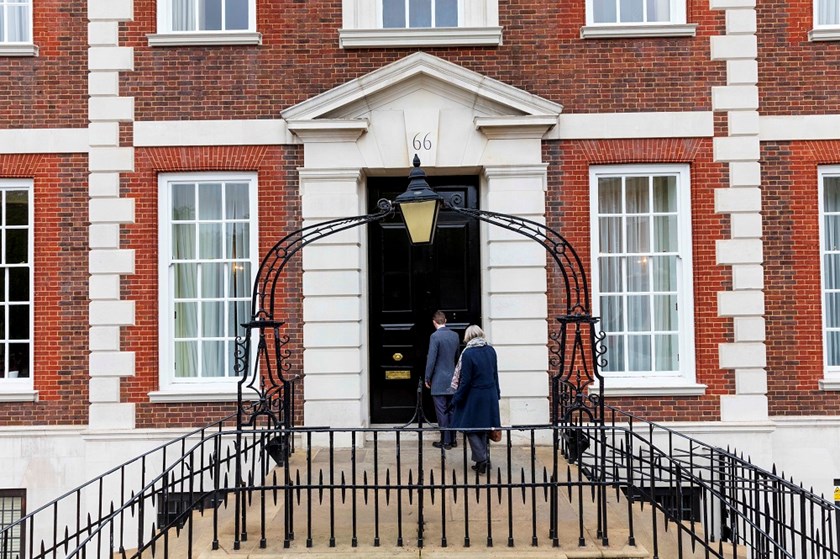An introduction to trusts for international clients
News

1. What is a trust?
A trust is an arrangement whereby certain persons (the "trustees") hold assets for the benefit of others (the "beneficiaries"). Persons who transfer assets to the trustees are called "settlors".
2. Who owns the trust assets?
The trustees are the legal owners of the trust assets (which could be, for instance, bank accounts and investment portfolios, or less conventional assets such as real estate, private companies, art or other valuable possessions).
3. What can the trustees do?
The powers and duties of the trustees are set out in the trust document and under general trust law. When exercising their powers under the trust the trustees have a duty to act in the best interests of the beneficiaries.
4. Who can act as trustee?
Any individual or company can act as a trustee. However, if the settlor or beneficiaries are domiciled or resident abroad it may not be tax efficient for family members based in the UK to act as trustees. Often, in such a case, the most practical arrangement is for an offshore trust company based in a reputable low-tax area to act.
5. What is a protector?
Protectors are persons (such as a friend or lawyer of the settlor) who are granted particular powers in relation to the trust which allows them to oversee the exercise
of certain key trustee powers. For instance, the protector could have the power to remove trustees, appoint new trustees, add or remove beneficiaries, or to consent
to or veto distributions.
6. What are the main documents required to form a trust?
The fundamental document is the trust deed. This will set out the terms of the trust, for instance: who can benefit and the powers given to the trustees and any protector. The settlor may also provide the trustees with a letter of wishes to give them guidance when exercising their powers. Although the trustees will take the letter of wishes into account when making decisions regarding the trust, such a letter is not legally binding.
7. What is the difference between a trust and a foundation?
A trust is an Anglo-Saxon concept and is therefore found in common law jurisdictions. A foundation is a concept derived from civil law rules (i.e. continental Europe). Whereas a trust is an arrangement whereby property is held for the benefit of one or more persons, a foundation is a separate legal entity (similar to a company).
A foundation can be created to achieve a similar purpose to a trust (i.e. the holding of wealth on behalf of a family). However, because a foundation is not a concept which has a basis in UK law, it is vulnerable to be taxed in an unpredictable and unfavourable fashion by HM Revenue & Customs. We would therefore normally advise against using foundations where the beneficiaries are resident in the UK.
8. What are the main advantages of creating a trust?
(i) Tax: A trust can be used to shelter the assets of a non-UK domiciled individual from inheritance tax. It may also have capital gains tax advantages.
(ii) Probate: To the extent that assets are settled in trust, there is no need for Wills to be drawn up (or for probate to be obtained) in respect of the assets on the death of family members. This allows assets to pass to the next generation efficiently.
(iii) Flexibility: Trusts can provide flexibility in passing assets to the next generation so that changes in the circumstances of the beneficiaries or in tax law can be taken into account.
(iv) Safeguarding assets: Use of a trust can prevent the dissipation of assets by financially immature beneficiaries. In addition, trusts may provide a measure of asset protection in the event of a beneficiary's bankruptcy or divorce, or if a beneficiary requires paid care in the future, or against potential claims under a forced heirship regime.
9. What are the main disadvantages of a trust?
- Control: The creation of a trust involves passing legal control of assets to the trustees. However, as noted above, powers may be granted to a protector as a check on the trustees and the trustees are legally obliged to act in the best interests of the beneficiaries.
- Cost: Another possible disadvantage of a trust is the cost of establishing and administering it (particularly so if the value of the trust assets is low). The cost of administration is paid for from the trust fund.
10. Can the trustees be changed?
In short, yes. The power to remove trustees, and appoint new ones, could be given to the protector, or possibly to the settlor. Most professional trustees would prefer to resign voluntarily if a difficulty arises, however.
11. Can the trust be terminated?
The trust may be terminated by all the assets of the trust being distributed to one or more of the beneficiaries. It will normally be up to the trustees and/or the protector – taking into account the terms of the trust, the wishes of the family and other relevant factors (eg tax consequences) – to decide whether to do this and how the trust assets should be distributed.
If you require further information on anything covered in this briefing please contact a member of our Private Client Team on 020 3375 7000 or your usual contact at the firm. Further information can also be found on the Private Wealth page on our website.
This publication is a general summary of the law. It should not replace legal advice tailored to your specific circumstances.
© Farrer & Co LLP, June 2016







